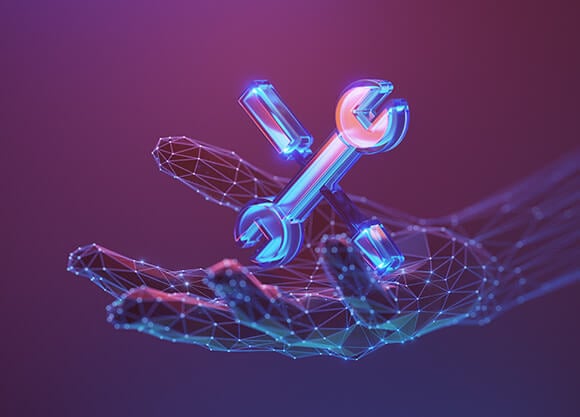
Students, faculty create AI-powered tool to improve quality of life for those with physical disabilities
November 08, 2024

November 08, 2024

Associate Professor of Computer Science Chetan Jaiswal and Associate Professor of Occupational Therapy Karen Majeski alongside students Jack Duggan ’24 and Michael Ruocco ’25 presented their prototype at the Institute of Electrical and Electronics Engineers’ 14th Global Humanitarian Technology Conference recently.
“AI is the fundamental to this work. It allows us to track a user’s facial gestures and movements in real time,” said Jaiswal.
With applications, including gaming, general computer use, or communication, AccessiMove grants independence to those who may otherwise need assistance with these tasks.
“Although various types of direct and indirect access tools are out on the market for purchase, they are often either expensive, unreliable or time-consuming to use. Our goal was to create a universally accessible tool that is available as part of the device's operating system, not an additional add-on piece of hardware,” said Majeski.
To achieve this, the team of inventors faced many challenges and revelations during the development process.
“Most of the challenges we've faced during development involve starting with one approach, progressing with that approach, and realizing later on there was a better one,” said Ruocco.
Funding limits the scope of sampling and research, but student volunteers assisted in the testing stage allowing issues to come to light.
“If we have substantial funding and research support, we would like to further develop use-case, dependent, customizable products. For example, a version of AccessiMove that controls a wheelchair. Another product helps a veteran surf the Internet, and yet another is in hospital settings helping patients to communicate with doctors,” said Jaiswal.
The potential for this software is endless. With further development, the application can open many doors for people with mobile impairments, allowing them an easier path to communicate and interact with others.
“This work highlights the importance of interprofessional practice and what can be achieved when putting a team of computer science and healthcare professionals together,” said Majeski.
AccessiMove has the potential to greatly improve the quality of life for those with physical disabilities, and it would not have been possible without the collaboration of these departments.
“I believe research should do more than advance knowledge -- it should transform lives, especially for those who face the greatest challenges,” said Jaiswal.
Quinnipiac Today is your source for what's happening throughout #BobcatNation. Sign up for our weekly email newsletter to be among the first to know about news, events and members of our Bobcat family who are making a positive difference in our world.
Sign Up Now